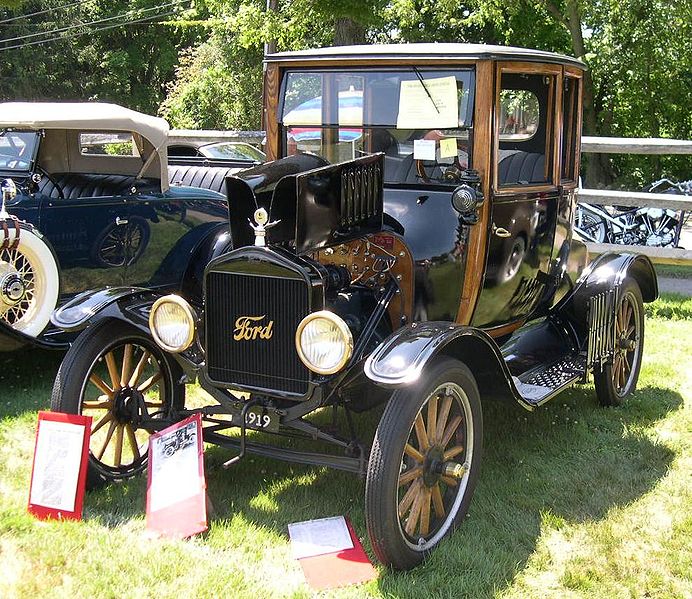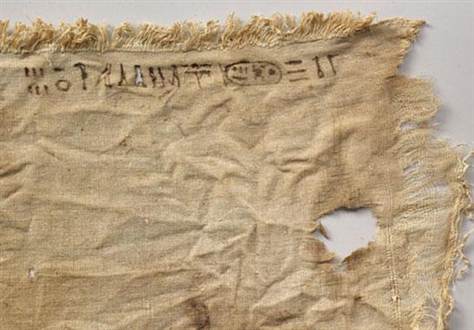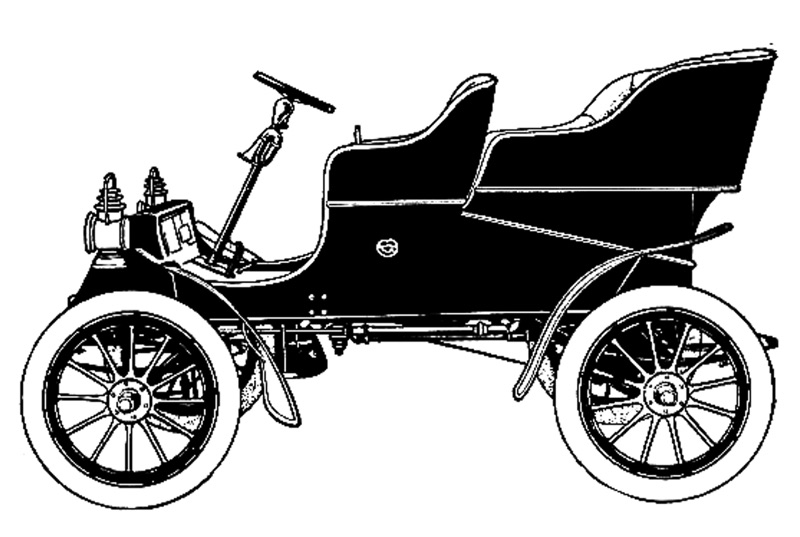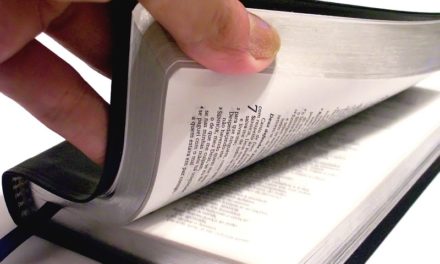| Q1 |
 Let’s say your grandpa paid $476 cash for a brand new 1919 Ford Model T Coupe—his pride and joy. But unfortunately he was killed in a logging accident 5 months later, when your grandma was pregnant with her only child, your mom. He had driven it only 27 miles. Because your grandmother couldn’t drive and loved her husband very much, she had someone put it on blocks in the barn and cover it well. And there it remained until your 18th birthday when you were notified that you are now the owner, according to a will she had drawn up years ago, in hope you would use it to help fund your college education.
Let’s say your grandpa paid $476 cash for a brand new 1919 Ford Model T Coupe—his pride and joy. But unfortunately he was killed in a logging accident 5 months later, when your grandma was pregnant with her only child, your mom. He had driven it only 27 miles. Because your grandmother couldn’t drive and loved her husband very much, she had someone put it on blocks in the barn and cover it well. And there it remained until your 18th birthday when you were notified that you are now the owner, according to a will she had drawn up years ago, in hope you would use it to help fund your college education.
What if you were about to auction it off and had an antique expert check it out. He took all his special high-tech analysis equipment to the old barn where the Ford still sat and examined every part of the car to determine its originality. He came back with one of two results:
- It, indeed, was 100% original
- That, though it looked exactly like the original, it was replicated by a craftsman forger just 15 years ago. Nothing was original.
Now tell me, would it make any difference which report he gave?
Remember your answer.
| Q2 |
 You have in your possession a remnant of King Tut’s favorite linen fabric, complete with hieroglyphics. You decide to auction it off and hire an expert on original fabrics to evaluate it. He comes back with one of two results.
You have in your possession a remnant of King Tut’s favorite linen fabric, complete with hieroglyphics. You decide to auction it off and hire an expert on original fabrics to evaluate it. He comes back with one of two results.
- It is indeed a remnant and has located the original in an Egyptian museum with the severed part missing—which perfectly matches your piece.
- Though the severed pieces match almost exactly, and the dyes used date back to the correct time period, the linen used is modern, though artificially aged, and the hieroglyphics give evidence of a forgery that only the best experts could see.
Again, please tell me if it would make any difference in the report he gave? Remember your answer.
| Q3 |
DEFINITION of “remnant”: A small part or portion that remains after the main part no longer exists.
Must a “remnant” have ALL the characteristics of the original part, MOST of the characteristics, or only need to APPEAR the same?
| Q4 |
![yikdMoRiE[1]](https://counterpartstudies.org/wp-content/uploads/2015/12/yikdmorie1.png?w=150) You have been reading and studying your Bible faithfully, from Genesis to Revelation for the first time. You now come to the last verse in Revelation 12 that speaks about a small group of God’s people in the last days. This excites you and you want to be among those people, but you belong to no church and know nothing of Christianity, except what you read about in the Bible. There are only three defining characteristics of this group in this verse:
You have been reading and studying your Bible faithfully, from Genesis to Revelation for the first time. You now come to the last verse in Revelation 12 that speaks about a small group of God’s people in the last days. This excites you and you want to be among those people, but you belong to no church and know nothing of Christianity, except what you read about in the Bible. There are only three defining characteristics of this group in this verse:
- They are called a remnant,
- They are obedient to the commandments of God (not man),
- They have the testimony (evidence given, witness) of Jesus.
Please tell me if it would be important for the remnant to have the same doctrines as the Early Church, preach and emulate the same Christ, and are obedient to the same commandments of God (not man)? Remember your answers to the first two questions.
What else characterized this church?
- Was clarifying sin, and repentance from it, important then?
- Was works of man part of their justification message?
- Was the Old Testament a vital part of the Word of God to them at that time?
- Were the gifts of the Spirit helpful and important?
- Did they have current messages from the Lord for meeting the challenging times ahead–messages not in their Bible (OT)?
- Did they take Christ’s commission “Teaching them to observe all things whatsoever I have commanded you” (Matt 28:20) seriously, or was it OK to leave out some of His teachings?
- Did the early church have problems with false teachers, false prophets, and false shepherds?
- Did, in truth, the early church have true prophets? If so, were they only males?
- Were the members to be careful about how they cared for their bodies?
- Was their evangelism directed just to their own people, a select group, or all nations, tongues, and peoples?
- Did they consider Jesus Christ as the Son of God who called his Father His God and the “only true God”?
- Was benevolence to nonbelievers an active part of the church then?
- Were miracles also a part, and if so how big or small a part?
- Was prayer very effective then, and necessary?
- Was it important then to be faithful, watchful, hopeful, and consistent?
- Was the message of the early church a popular message?
| Q5 |
Considering all this, should we expect a church in the last days to have these characteristics, as the original did?






